How has the Covid-19 pandemic impacted your professional and personal life?
(MV) The COVID-19 pandemic has affected our lives and homes in a significant way, it has taught us a great deal of humility, to appreciate the ordinary things that we have lost during the lock-downs, such as the ability to meet friends, do sports in fitness centers and swimming pools, the ability to go out go out with the children and plan common activities. We spent a lot of time isolated and that pretty much taught us to get along and communicate better. Since I already have elderly parents, I was definitely concerned whether they would survive these extremely difficult situations in isolation in good health, and discussions about testing and vaccination were also a big topic. In the end it worked out fine and today we can continue to enjoy their closeness and they can also continue to enjoy their grandchildren.
In the professional field, I basically had only one goal, namely to protect the health of my employees as much as possible and to minimize the consequences in the event that an infection has already occurred. My colleagues and I had to become specialists in COVID-19 and its impact on the functioning of our plant in Slovakia practically overnight. We have adopted a huge number of innovative measures, which, if necessary, we can immediately put into practice again. But I will say it this way: from the first moment I felt the humanity of the people and the willingness to invent and implement any measure that would have a positive impact on their colleagues. This energy gave me strength during the entire period of the pandemic.
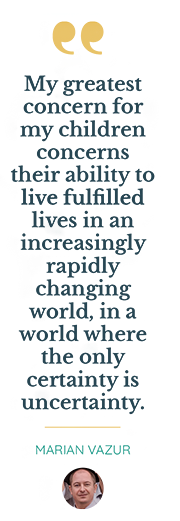 (TF) The Covid-19 pandemic had a significant impact on both my professional and personal life, similarly to millions of other people. It forced me to adapt to remote work and virtual collaboration, which presented new challenges and required a shift in communication and culture. However, nowadays I feel we need to spend more time in our social circles and not be so isolated. Personally, as an introvert, I didn’t feel a big change. However, it led to a change in the daily routines of me and my family, especially for the kids who learned remotely during the pandemic.
(TF) The Covid-19 pandemic had a significant impact on both my professional and personal life, similarly to millions of other people. It forced me to adapt to remote work and virtual collaboration, which presented new challenges and required a shift in communication and culture. However, nowadays I feel we need to spend more time in our social circles and not be so isolated. Personally, as an introvert, I didn’t feel a big change. However, it led to a change in the daily routines of me and my family, especially for the kids who learned remotely during the pandemic.
Were you able to identify any positive side effects or opportunities resulting from this situation?
(MV) During that time, one was aware of all the things in life which could be lost, and I was willing to do anything and submit to any measure that would help us survive. Since the statistics differed significantly in the range of the possible number of victims, with some really catastrophic scenarios, it was exactly in such extreme situations that I re-evaluated my life priorities. I also see the ability to adapt to basically any situation as one of the positives of this period.
(TF) Yes, despite the challenges, there have been some positive side effects and opportunities. The pandemic pushed me to explore new skills and spend more time on personal growth and professional development. It also accelerated the digital transformation, enabling remote learning and work-from-home options. Furthermore, the global crisis highlighted the importance of community and solidarity, fostering a sense of togetherness and empathy.
What is the favorite part of your day and why?
(MV) My favorite part of the day is the morning, and it’s always between getting up, having breakfast, coffee and sorting out my thoughts on the day’s priorities. After that, I plunge into a whirlwind of responsibilities, and sometimes it’s really an art to disconnect me from all of it.
(TF) My favorite part of the day is usually the morning. I start the day early, before 5 AM, as I love going to the gym in the morning. It allows me to enjoy the quiet and peacefulness of the early hours, helping me start the day with a clear mind and positive energy.
Do you have any habits or routines that help you maintain your work-life balance and work well for you?
(MV) In my opinion, it is a true must to have a balanced mental and physical health, as I am convinced that if these two elements are not in balance, the consequences will manifest themselves in both personal and professional life. I read quite a lot of books on personal development and emotional intelligence, as well as autobiographies of successful entrepreneurs and athletes, lately I have been reading literature in the field of investing and finance, listening to quite a few podcasts and forming an opinion about investing. Physically, after years I have invested more time in cycling and I am discovering the charm of free movement, I play badminton, sometimes I go swimming. And all this, of course, with the goal of being healthy and active for as long as possible.
(TF) Yes, establishing routines and boundaries has been crucial for maintaining work-life balance. I prioritize setting clear work hours and creating a dedicated workspace. Additionally, I make time for regular breaks, physical activity, and spending quality time with loved ones. Disconnecting from technology and engaging in hobbies help me keep a healthy work-life balance.
What advice would you give to your 20-something-year old self?
(MV) I would definitely start investing in the stock market much earlier, but who has such plans when they are in their twenties, right? I would also tell my younger self that wisdom does not come only with knowledge, but mainly with experiences that cannot be transferred, that it is necessary to value the work of each and every person and to be humble.
(TF) I would advise my 20-something-year-old self to not be afraid of taking risks. It’s important to explore different paths, be open to new opportunities, and not be afraid of failure. Most of the important things I have achieved in my life looked unconquerable at first, but focusing on the goal and the willingness to take risks helped me overcome those challenges. It’s okay to make mistakes and learn from them.
What are the parts of your work that still excite you and give you motivation?
(MV) Since the end of last year, I changed my position within the Garrett corporation and left the helm of the plant in Slovakia to my successor. With the new role, I also got the opportunity to see things from inside the “kitchen”, so to speak, where strategies for launching new products on the market are being prepared in the long term and to participate in cost optimization within the entire group. So I’m currently training in finance and human resources. At the same time, I am also the company’s ambassador in Slovakia, which opens up new possibilities for even closer cooperation with the regional self-government, but also with representatives of the government and individual ministries.
(TF) The parts of my work that still excite me and provide motivation are opportunities for creativity, problem-solving, and making a positive impact. When I can utilize my skills to come up with innovative solutions or contribute to a meaningful project, it brings a sense of fulfillment and keeps me motivated. Also, a very important part of my work is finding talented leaders and bringing them to a higher level of management. Being able to guide and inspire individuals to reach their full potential is incredibly rewarding.
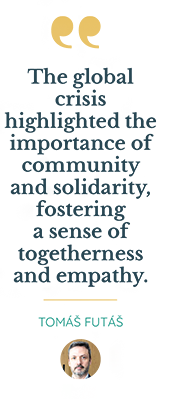
If you had to make a career switch, in what other profession can you imagine yourself?
(MV) If I wasn’t doing what I do and what fulfills me, I would like to devote myself to work that has a social significance, e.g. work in healthcare, or education, to help create working strategies and then to introduce them into practical life so that all those who need them benefit from them.
(TF) If I were to make a career switch, I can envision myself in the field of education. I spent a few years in academia when I was younger, and I still have a passion for sharing knowledge and helping others grow. The opportunity to make a direct impact on people’s lives and contribute to their overall well-being is something that resonates with me deeply.
What is your biggest fear for the generation of today’s children? What about the biggest hope?
(MV) My greatest concern for my children concerns their ability to live fulfilled lives in an increasingly rapidly changing world, in a world where the only certainty is uncertainty. And so that they never forget the values that I tried to instill in them from a young age, such as respect for elders, patience, hard work, helping those who need it and love for one’s neighbor. If they follow them then I have no worries about their future and their place in this world.
(TF) My biggest fear for the generation of today’s children is the state of our planet that we are going to leave them. My generation and the generations before me didn’t think about the consequences of our actions, and I am afraid that the upcoming generations will need to live much more humbly so as not to destroy the planet.
My biggest hope for today’s children lies in their resilience and adaptability. Despite the challenges they face, this generation has incredible access to information, diverse perspectives, and global connectivity. I hope that they can leverage these opportunities to create positive change and address pressing global issues. I also have faith in their ability to harness technology for innovation, education, and the creation of inclusive communities. With the right guidance and support, they have the potential to shape a brighter future for themselves and the world.
Marian Vazur, Global Operations Strategy Director, Garrett - Advancing Motion
Tomáš Futáš, Center Head & Vice President Delivery, Ness Digital Engineering

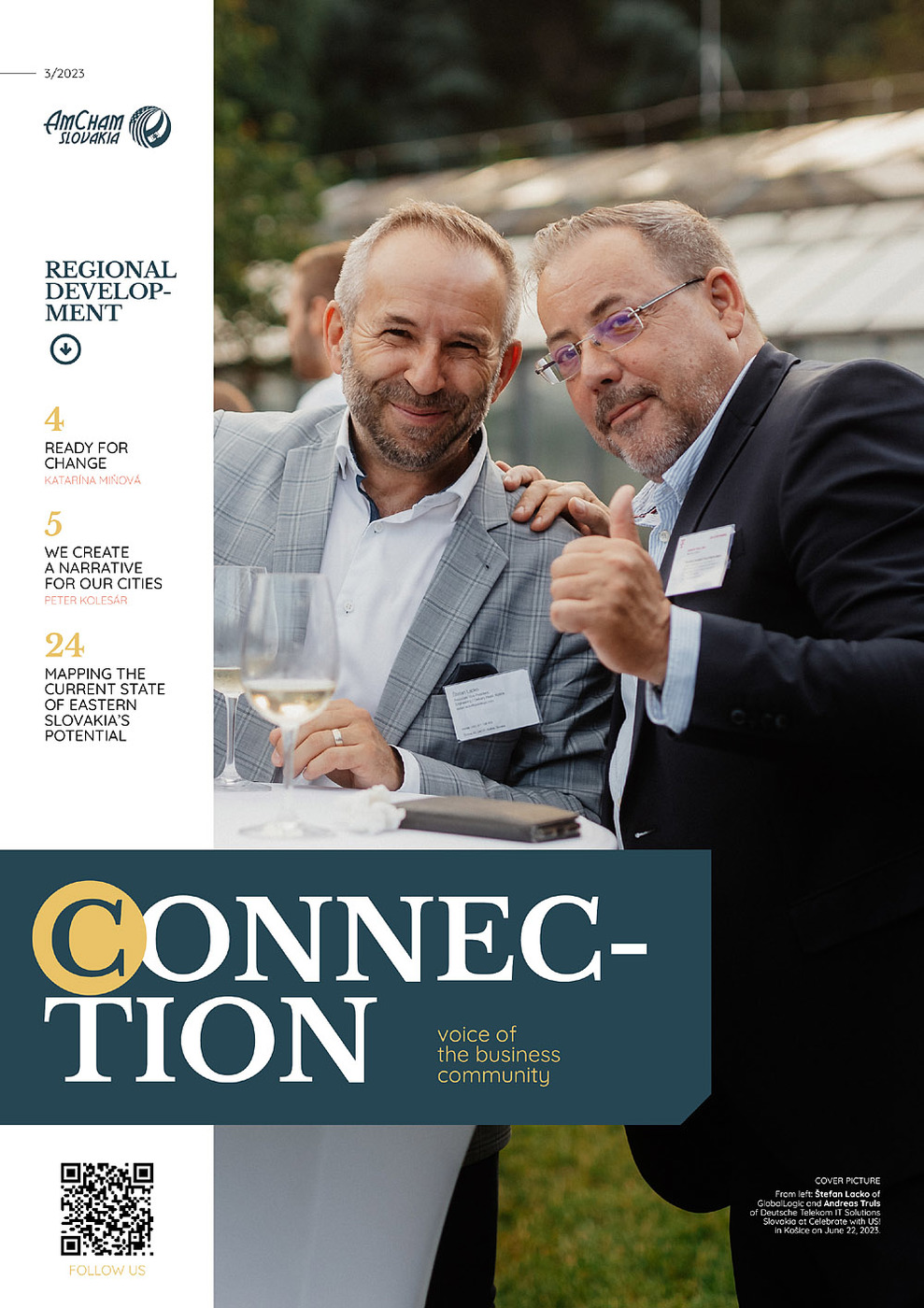
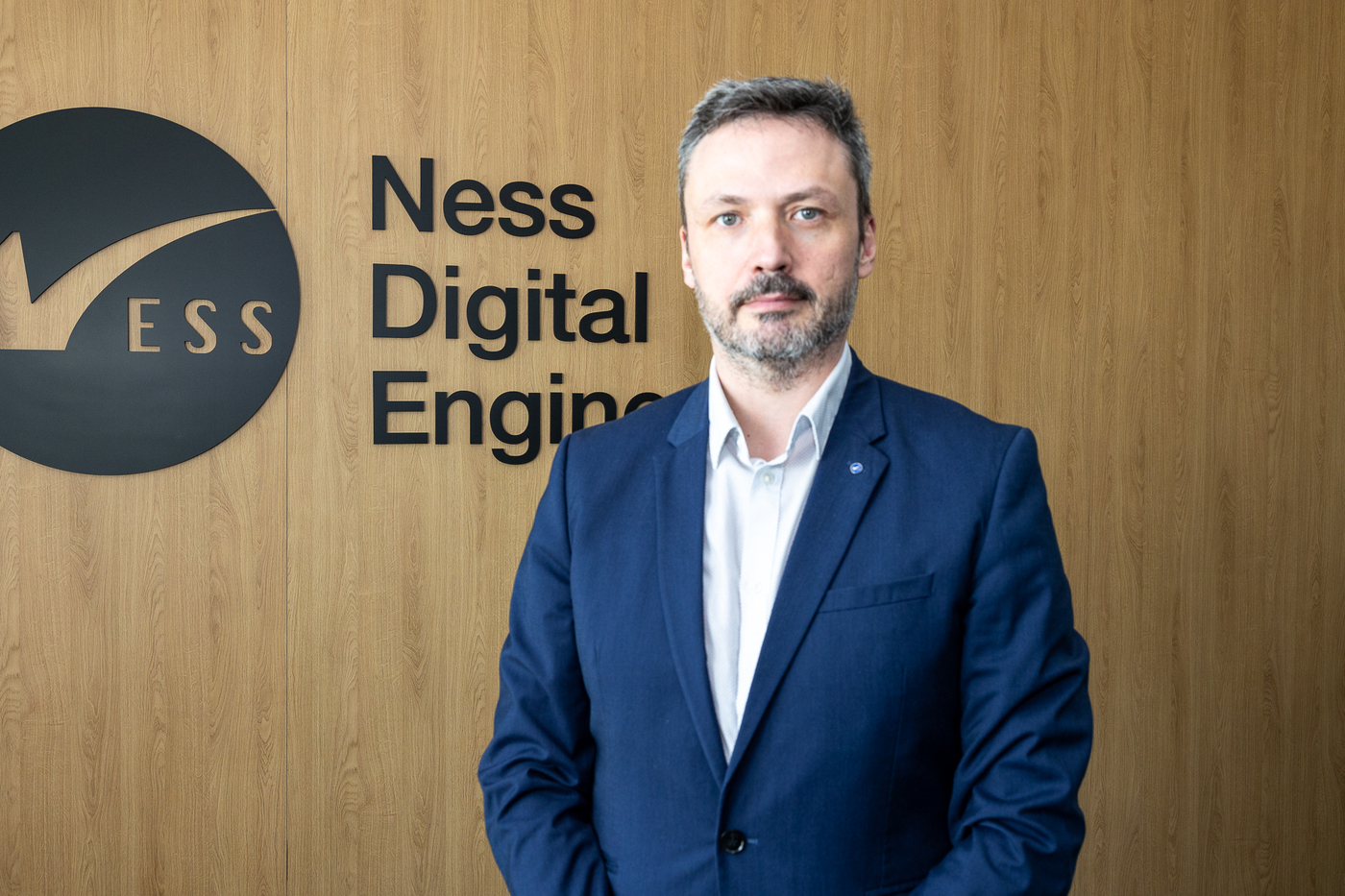
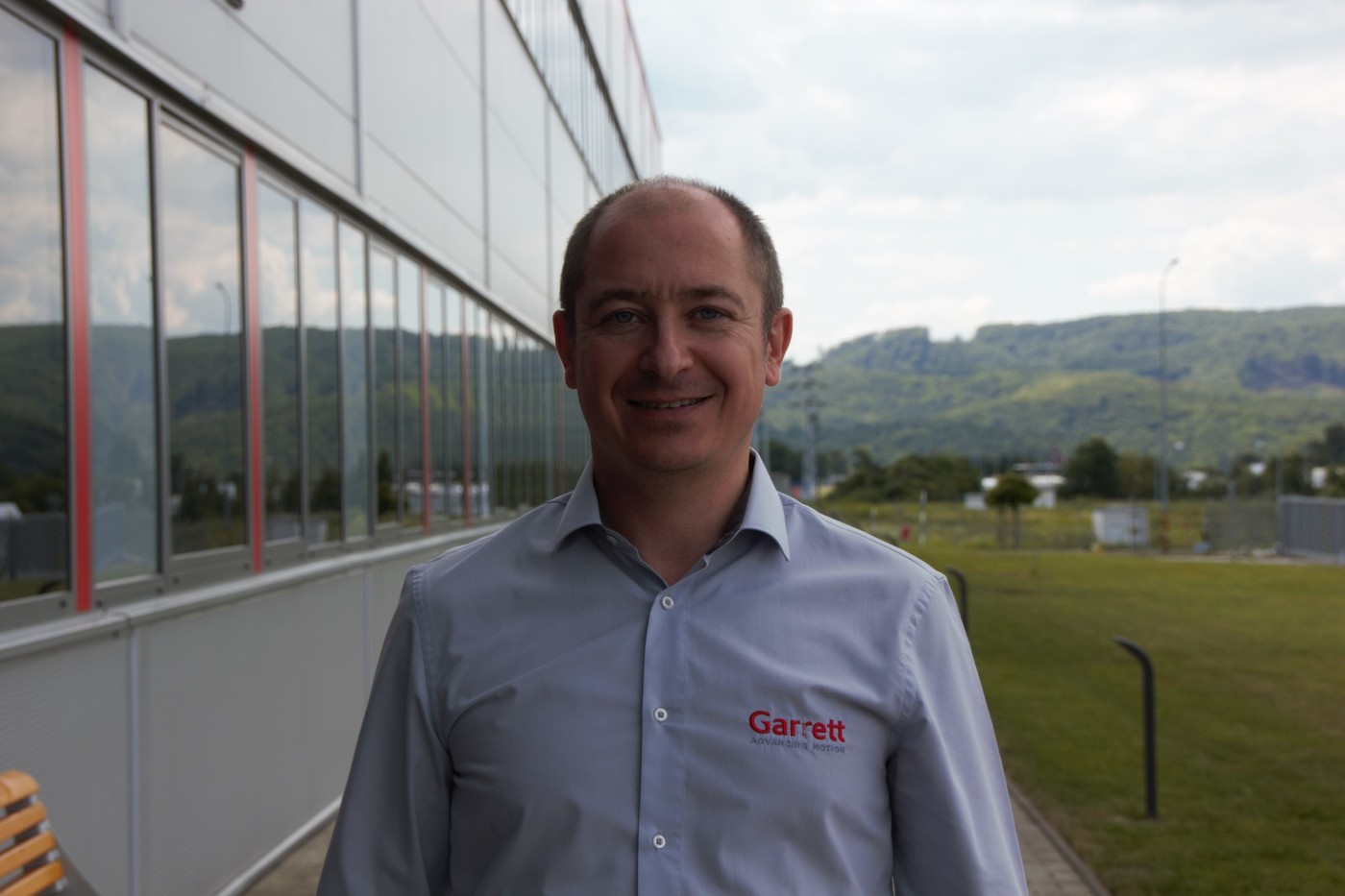
Follow us